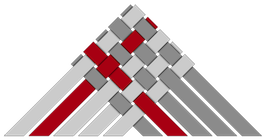Presentations, Panels and Workshops
Presentations, Panels and Workshops
Please see the abstracts and presenters for each presentation.
“The AUT NZSL programmes in the time of COVID-19 ”
When COVID-19 hit New Zealand in March 2020, tertiary institutions and interpreters alike had to rapidly adapt to working online. In this presentation, we will describe the significant challenges that impacted the AUT NZSL programmes when we had to move online during lengthy lockdowns. The impact was particularly felt in our language classes, interpreting classes, and practicum – all of which rely on face-to-face interaction and situational learning. We will outline the strategies we used to mitigate negative impacts for students as much as possible, but also acknowledge the ways in which students’ skills development has been affected. We will also discuss some aspects of online learning which has benefited our students and improved our use of technology. We will share overall lessons we have learnt from these experiences, and make suggestions for how the community can support newer interpreters who were part of the ‘COVID cohorts’.
George Major, Julia Freeman, Susie Ovens & Rachel Coppage (George & Julia presenting)
George Major
George is a sociolinguist with a professional background in NZSL-English interpreting. Her interpreting research has included projects on interpreter role, ethics, and health interpreting. George is programme leader of the NZSL programmes at AUT and teaches interpreting, theory and ethics, comparative analysis and practicum.
Julia Freeman
Julia has been a part-time lecturer for four years, guiding the year 3 interpreting students through their final year of studies. Her area of interest is building emotional resilience by learning how to navigate intrapersonal challenges and holistically caring for wellbeing. She has been an interpreter for seven years and has experience in a range of interpreting contexts.
Susie Ovens
Susie has over 20 years of experience teaching NZSL as part of the NZSL programmes at AUT. She holds a Masters in Professional Language Studies in Language Teaching. Susie’s interests include exploring technology to develop innovative instructional materials for sign language teaching. Susie contributes her expertise to a variety of Deaf organisations, advisory and stakeholders’ groups.
Rachel Coppage
Rachel is a Deaf Studies lecturer at AUT, teaching courses to welcome first year students to the Deaf world and also one course in their final year to discuss current issues concerning Deaf people in Aotearoa. Rachel is an art psychotherapist in her private practice, and she also facilitates a range of community development projects. Rachel is a board member of Ko Taku Deaf Education and a member of the Coalition of Deaf Mental Health Professionals.
“What do we actually do to make calls work? Exploring the role of New Zealand Sign Language
video interpreters.”
This presentation will describe my recent Master’s study in which I explored the role of New Zealand
Sign Language video interpreters. I am an experienced video interpreter and was motivated to
undertake this research after conducting a pilot study in 2016 which analysed my role. I draw on
Llewellyn-Jones and Lee’s (2014) role-space theory to explore the different roles that skilled and
experienced interpreters adopted during calls between deaf and hearing callers.
The study reveals that video interpreters’ decisions are often driven by overall call goals, not only by
translation choices at a message level. Findings highlight dynamic role shifts that occur particularly
during call openings and closings. At times interpreters take a high level of control over the call,
actively managing participants’ turn-taking to ensure smooth flow of the conversation, or to
navigate challenges such as automatic menus or answerphone messages. Interpreters personalise
their greetings and engage in social talk with callers. They act as allies with callers, saving face for the
deaf caller who may have less awareness of telephone etiquette, and conforming to hearing callers’
telephone etiquette expectations.
The findings challenge current expectations of the video interpreting role and demonstrate that the
role interpreters are actually performing is far more complex than we previously knew.
Donna Bailey
Donna Bailey is a video interpreter at the New Zealand Relay service. Donna currently enjoys a
balance between community interpreting and video interpreting. Donna’s interpreting experience
spans more than 2 decades. Working as a sign language interpreter in the New Zealand Deaf
community (from 2000) and in video interpreting (from 2011) led to academic study at Auckland
University of technology where she completed an MA thesis study analysing the working role of
New Zealand Sign language video interpreters in 2021. Donna volunteers her time as a committee
member for the Sign Language Interpreters Association of New Zealand (SLIANZ) and is also a
devoted wife and mother of two teenage daughters.
S.L.O.W – A Tool for Interpreting on Stage and Screen
S.L.O.W is an acronym originally developed for theatre interpreting. It was created out of
the need for a quick and memorable framework for interpreting on stage. It just so happens
to lend itself nicely to media interpreting and to many public interpreting domains we
increasingly find ourselves working in. The aim of this tool is to improve the clarity of our
work in suboptimal conditions, for example, at a distance, in front of blurring theatre lights,
or on small screens as 2D figures.
Melissa Simchowitz
Melissa Simchowitz (Ngāti Maniapoto) is passionate about theatre interpreting. To date, she
has interpreted over thirty shows, co-ordinated and consulted on a number of others, and in
recent years, pivoted towards teaching and training. Eight years after graduation, she is
finally ready for her first SLIANZ presentation and hopes to share some of her tools and
strategies with S.L.O.W., a tool for interpreting on stage and screen.
Interpreters on screen, the new normal?
Jenn Gilbert
Jenn Gilbert is a Wellington based NZSL interpreter, currently working as a freelance interpreter as well as mother of two. Having previously published a study on NZSL interpreters, she continues to research relevant areas of the profession. Her latest research documents the effects of recent changes to the interpreting profession as a result of the pandemic.

